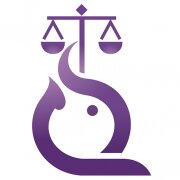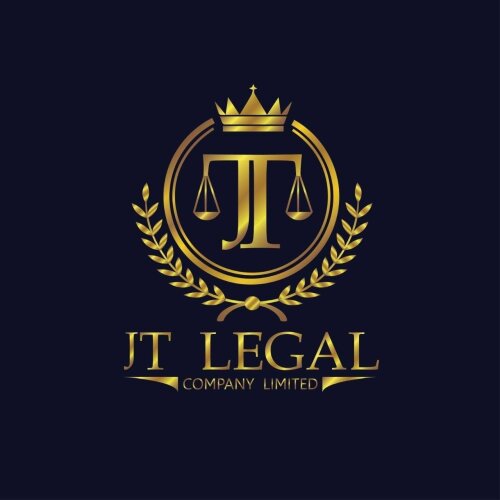1. เกี่ยวกับกฎหมายน้ำมัน ก๊าซ และพลังงานในประเทศไทย
กฎหมายน้ำมัน ก๊าซ และพลังงานในประเทศไทยครอบคลุมทั้งการสำรวจ ผลิต และจำหน่ายทรัพยากรพลังงาน รวมถึงการบริหารความมั่นคงพลังงานของประเทศ
หน่วยงานหลักที่กำกับดูแลคือกระทรวงพลังงาน ซึ่งออกแบบกรอบนโยบายและดูแลการบังคับใช้กฎหมายที่เกี่ยวข้อง
แหล่งข้อมูลทางการ ระบุว่าไทยมุ่งเน้นการส่งเสริมการพัฒนาพลังงานที่มั่นคง ปลอดภัย และเป็นมิตรต่อสิ่งแวดล้อม พร้อมเผยแพร่ข้อมูลมาตรฐานและแนวทางปฏิบัติผ่านเว็บทางการ
ข้อมูลเชิงนโยบายและกรอบกฎหมายพื้นฐานสามารถตรวจสอบได้ที่กระทรวงพลังงาน: energy.go.th
2. ทำไมคุณอาจต้องการทนายความ
การทำธุรกรรมพลังงานและสัญญาในอุตสาหกรรมน้ำมัน ก๊าซ และพลังงาน มักมีรายละเอียดทางกฎหมายที่ซับซ้อน และต้องการผู้เชี่ยวชาญด้านกฎหมายพลังงาน
ต่อไปนี้คือสถานการณ์จริงที่อาจต้องทนายความเพื่อช่วยคุณนำทาง
- เจรจาและตรวจทานสัญญาซื้อขายน้ำมันหรือก๊าซกับผู้ผลิตต่างชาติหรือบริษัทไทย
- ดำเนินการขอใบอนุญาตสำรวจและผลิตปิโตรเลียม หรือแก้ไขข้อพิพาทเกี่ยวกับใบอนุญาต
- ข้อพิพาทเรื่องค่าชดเชย ค่าปรับ หรือเงื่อนไขยกเลิกสัญญาในโครงการพลังงาน
- ประเด็นความรับผิดชอบด้านสิ่งแวดล้อมที่เกี่ยวกับการดำเนินโครงการพลังงาน
- การเจรจาข้อตกลงโครงสร้างเงินทุน โครงสร้างภาษี หรือแรงจูงใจภาครัฐ
- กรณีการทบทวนข้อกำหนดทางกฎหมายภายในบริษัท และการสื่อสารกับหน่วยงานรัฐ
3. ภาพรวมกฎหมายท้องถิ่น
กฎหมายที่มักถูกอ้างถึงในการดำเนินธุรกิจน้ำมัน ก๊าซ และพลังงานประกอบด้วย 2-3 กรอบหลักที่กำกับการออกใบอนุญาต การสำรวจ และการดำเนินงานด้านความมั่นคงพลังงาน
1) พระราชบัญญัติปิโตรเลียม พ.ศ. ที่ถูกอ้างถึงในกรอบการสำรวจและการผลิตปิโตรเลียม
2) ระเบียบข้อบังคับที่ออกโดยกระทรวงพลังงาน เกี่ยวกับใบอนุญาตธุรกิจพลังงานและการตรวจสอบ
3) แนวทางด้านความรับผิดชอบต่อสิ่งแวดล้อมในการดำเนินโครงการพลังงาน
ข้อมูลเชิงกฎหมายและกรอบการกำกับดูแลสามารถศึกษาเพิ่มเติมได้ที่เว็บไซต์กระทรวงพลังงาน และหน่วยงานที่เกี่ยวข้อง เช่น กระทรวงพลังงาน
- พระราชบัญญัติปิโตรเลียม พ.ศ. 2510 (แก้ไขหลายครั้ง) - กรอบการสำรวจและผลิตปิโตรเลียม
- ระเบียบและประกาศของกระทรวงพลังงานเกี่ยวกับใบอนุญาตและการตรวจสอบกิจการพลังงาน
- กรอบด้านความปลอดภัยและสิ่งแวดล้อมในการดำเนินโครงการพลังงาน
4. คำถามที่พบบ่อย
อะไรคือกรอบหลักของกฎหมายน้ำมัน ก๊าซ และพลังงานในประเทศไทย?
กรอบหลักรวมถึงการกำกับดูแลการสำรวจ ผลิต และจำหน่ายพลังงานจากหน่วยงานรัฐ และสัญญาระหว่างผู้มีส่วนได้ส่วนเสียสองฝ่าย
อย่างไรจึงปรึกษาทนายเมื่อมีข้อพิพาทสัญญาพลังงาน?
ติดต่อทนายความด้านพลังงานเพื่อประเมินข้อกฎหมาย ตรวจสอบสัญญา และวางกลยุทธ์ทางกฎหมาย ทั้งในการเจรจาและการฟ้องร้อง
เมื่อไหร่ควรเริ่มหาทนายความก่อนเริ่มโครงการ?
ควรเริ่มหาทนายความตั้งแต่ขั้นตอนการออกแบบสัญญา โครงสร้างการระดมทุน และการเจรจาใบอนุญาต เพื่อป้องกันความเสี่ยงทางกฎหมาย
ที่ไหนสามารถดูข้อมูลสัญญาพลังงานและใบอนุญาตอย่างเป็นทางการ?
ข้อมูลดังกล่าวมักเผยแพร่โดยกระทรวงพลังงานและหน่วยงานที่เกี่ยวข้อง เช่น DEDE หรือ EPPO บนเว็บไซต์รัฐบาล
ทำไมควรมีทนายความตั้งแต่การเจรจาเอกสารสัญญา?
ทนายช่วยตรวจสอบเงื่อนไขสำคัญ เช่น สิทธิเรียกร้อง ความรับผิด และเงื่อนไขการยกเลิก เพื่อป้องกันข้อพิพาทในอนาคต
สามารถเรียกร้องค่าชดเชยจากสัญญายกเลิกได้อย่างไร?
ทนายจะช่วยระบุข้อบังคับในสัญญา ความเป็นธรรมของการยกเลิก และแนวทางการเรียกร้องค่าเสียหายผ่านศาลหรืออนุญาโตตุลาการ
ควรเปรียบเทียบอะไรระหว่างสัญญากับบริษัทไทยและต่างชาติ?
เปรียบเทียบเงื่อนไขกำไรขาดทุน ความรับผิดร่วม ความรับผิดชอบต่อสิ่งแวดล้อม และเงื่อนไขเงินทุนร่วม
คุณสมบัติที่ทนายพลังงานควรมีคืออะไร?
ความชำนาญด้านสัญญาพลังงาน ระเบียบข้อบังคับของกระทรวงพลังงาน และประสบการณ์ในคดีลงทุนพลังงาน
การดำเนินคดีด้านพลังงานในประเทศไทยใช้เวลานานแค่ไหน?
ระยะเวลาแตกต่างตามคดี แต่โดยทั่วไปอยู่ในช่วงหลายเดือนถึงหลายปี ขึ้นกับจำนวนข้อโต้แย้งและศาลที่เกี่ยวข้อง
ค่าใช้จ่ายในการว่าจ้างทนายพลังงานคิดอย่างไร?
ค่าใช้จ่ายขึ้นกับความซับซ้อนของคดี และวิธีคิดค่าใช้จ่าย เช่น ค่าเหมาคดี ค่าอัตราค่าบริการต่อชั่วโมง หรือค่าธรรมเนียมร่วม
ฉันต้องเตรียมเอกสารอะไรบ้างก่อนปรึกษาทนาย?
สัญญา สำเนาใบอนุญาต รายงานประเมินความเสี่ยง งบประมาณโครงการ และข้อมูลทางการเงินที่เกี่ยวข้อง
รูปแบบการดำเนินการทางกฎหมายเกี่ยวกับพลังงานมีอะไรบ้าง?
สามารถเป็นได้ทั้งการเจรจา การไกล่เกลี่ย การฟ้องร้อง และการอุทธรณ์ต่อศาลหรืออนุญาโตตุลาการ
ถ้าความขัดแย้งเกิดขึ้นกับหน่วยงานรัฐ ควรทำอย่างไร?
ทนายทราบขั้นตอนการยื่นร้องเรียน ลงทะเบียนทำคำชี้แจง และยื่นอุทธรณ์หรือฟ้องร้องตามกรอบกฎหมาย
เราจะเลือกทนายความที่เหมาะสมกับโครงการพลังงานของเราอย่างไร?
ตรวจประสบการณ์ในโครงการคล้ายกัน ตรวจสอบผลงานอดีตลูกค้า และประเมินทักษะการสื่อสารและการให้คำปรึกษาเชิงกลยุทธ์
6. ขั้นตอนถัดไป
- ระบุวัตถุประสงค์และขอบเขตโครงการพลังงานของคุณให้ชัดเจนภายใน 1-2 วัน
- รวบรวมเอกสารสำคัญ เช่น ใบอนุญาต สัญญา และเอกสารทางการเงินภายใน 1-2 สัปดาห์
- ค้นหาทนายความด้านน้ำมัน ก๊าซ และพลังงานที่มีประสบการณ์ในโครงการคล้ายกัน 1-2 สัปดาห์
- ปรึกษาทนายเพื่อประเมินความเสี่ยง และขอประมาณการค่าใช้จ่ายในขั้นตอนถัดไป 1 สัปดาห์
- เจรจาเพื่อปรับปรุงสัญญาและข้อตกลง ก่อนลงนาม 2-4 สัปดาห์
- ดำเนินการยื่นใบอนุญาต และติดตามกระบวนการกับหน่วยงานรัฐ 4-12 สัปดาห์ ขึ้นกับกรอบงาน
- ติดตามผลและปรับแผนตามคำแนะนำทางกฎหมาย โดยมีทนายกำกับทุกขั้นตอน
Lawzana ช่วยคุณค้นหาทนายความและสำนักงานกฎหมายที่ดีที่สุด ใน ประเทศไทย ผ่านรายชื่อผู้เชี่ยวชาญด้านกฎหมายที่มีคุณสมบัติเหมาะสมที่คัดสรรและตรวจสอบล่วงหน้า แพลตฟอร์มของเรานำเสนอการจัดอันดับและโปรไฟล์โดยละเอียดของทนายความและสำนักงานกฎหมาย ช่วยให้คุณเปรียบเทียบตามสาขากฎหมาย รวมถึง น้ำมัน ก๊าซ และพลังงาน ประสบการณ์ และความคิดเห็นของลูกค้า
แต่ละโปรไฟล์ประกอบด้วยคำอธิบายเกี่ยวกับสาขากฎหมายของสำนักงาน รีวิวจากลูกค้า สมาชิกในทีมและหุ้นส่วน ปีที่ก่อตั้ง ภาษาที่พูด ที่ตั้งสำนักงาน ข้อมูลการติดต่อ การมีตัวตนบนโซเชียลมีเดีย และบทความหรือแหล่งข้อมูลที่เผยแพร่ สำนักงานส่วนใหญ่บนแพลตฟอร์มของเราพูดภาษาอังกฤษและมีประสบการณ์ทั้งในเรื่องกฎหมายท้องถิ่นและระหว่างประเทศ
ขอใบเสนอราคาจากสำนักงานกฎหมายชั้นนำ ใน ประเทศไทย — รวดเร็ว ปลอดภัย และไม่ยุ่งยาก
ข้อจำกัดความรับผิดชอบ:
ข้อมูลที่ให้ไว้ในหน้านี้มีวัตถุประสงค์เพื่อเป็นข้อมูลทั่วไปเท่านั้นและไม่ถือเป็นคำแนะนำทางกฎหมาย แม้ว่าเราจะพยายามตรวจสอบความถูกต้องและความเกี่ยวข้องของเนื้อหา แต่ข้อมูลทางกฎหมายอาจเปลี่ยนแปลงได้ตามกาลเวลา และการตีความกฎหมายอาจแตกต่างกันไป คุณควรปรึกษาผู้เชี่ยวชาญด้านกฎหมายที่มีคุณสมบัติเหมาะสมเพื่อขอคำแนะนำเฉพาะสำหรับสถานการณ์ของคุณเสมอ
เราปฏิเสธความรับผิดทั้งหมดสำหรับการกระทำที่ทำหรือไม่ทำตามเนื้อหาในหน้านี้ หากคุณเชื่อว่าข้อมูลใดไม่ถูกต้องหรือล้าสมัย โปรด contact us และเราจะตรวจสอบและแก้ไขตามความเหมาะสม
















